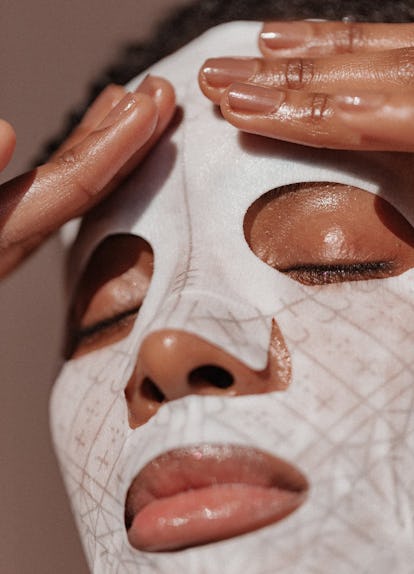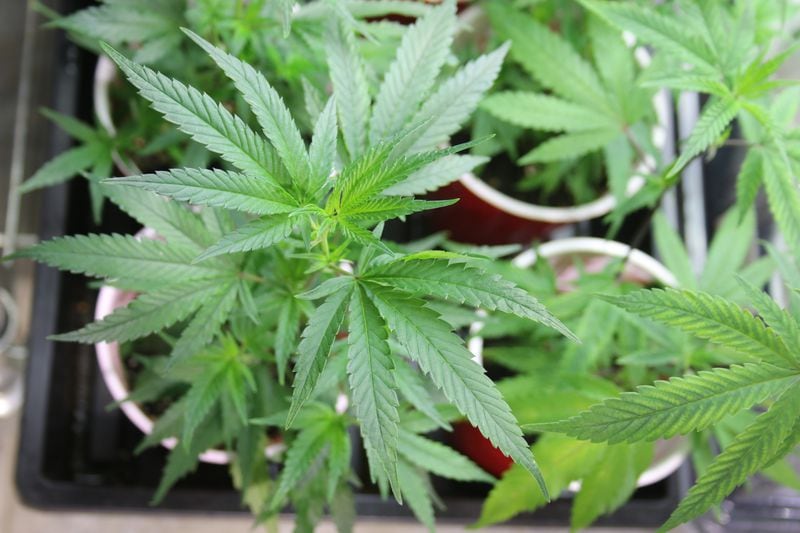The argument could be made that CBD has effectively replaced THC as the most famous three-letter acronym associated with cannabis at the moment. But let’s not get the two mixed up. CBD is short for cannabidiol, one of the compounds found in cannabis plants. Hemp and marijuana both belong to the cannabis plant family, and while they have their differences (more on that later!), CBD can be derived from either. The other compound found in cannabis plants is THC. THC gets you high, but CBD doesn't. Not even close.
It’s everywhere: body lotion, bath salts, supplements, sleep aids, even dog food (seriously). And don't get me started on CBD in skin care. It seems every other email in my inbox is a press release announcing “something dank is about to drop” or telling me to “take a hit” of a new serum. Anyone else feeling a little, uh, “burnt out” on the whole thing?
With all that said, you probably don’t need another article touting the purported benefits of CBD oil for your skin (though, sure, I’ll cover the basics). Instead, here's the stuff about CBD that no one else is telling you — from sourcing to social impact to financial practices — straight from industry insiders. If you're thinking of working CBD into your beauty routine, read this first.
CBD Basics
Although more research needs to be done around how CBD works and its ability to manage specific issues (like anxiety and insomnia, for instance), there are a few key points many industry experts seem to agree on. “CBD acts as an analgesic and anti-inflammatory,” Cindy Capobianco, the co-founder and president of CBD company Lord Jones, tells TZR. “CBD has been used for centuries to successfully relieve pain and treat skin conditions such as eczema, psoriasis, and rosacea — even sunburn and bug bites — when used topically.” Studies suggest that, when ingested, those same properties can have a slightly different effect. “It has the additional benefits of mood stabilization, relief from anxiety, and promoting a calm sense of well-being,” Capobianco says.
How, exactly, does it do this? Experts say that comes down to the endocannabinoid system, or ECS. “The ECS is a network of receptors found throughout every mammal,” a representative from Dosist, a company known for its CBD dose pens, tells TZR. “This system is responsible for maintaining the body’s homeostasis, or balance, and helps regulate everything from sleep, to pain, to appetite, to immune function, to stress.” Studies seem to indicate that the body is pretty much primed to thrive on CBD — it naturally produces endocannabinoids, and CBD is a related phytocannabinoid. Both apparently affect the ECS in similar ways. “It’s often described as a lock and key system, where the cannabinoid is the key ‘unlocking’ a receptor, causing a series of reactions throughout the body,” Dosist explains. There's evidence to suggest this can lead to less anxiety, better sleep, reduced inflammation, calm skin, et al.
“Some studies have shown that topical CBD can also help reduce oil production in addition to reducing inflammation in the skin, which are two main players in the generation of acne,” Dr. Jennifer Vickers, a dermatologist with Sanova Dermatology in Texas, tells TZR, adding that the anti-inflammatory effects of CBD oil on the skin can help calm and reduce redness, too. “It also has antioxidant and regenerative qualities to help offset damage from the sun, pollution, and aging.” Basically, it seems everyone’s complexion can stand to benefit from an application of cannabidiol.



